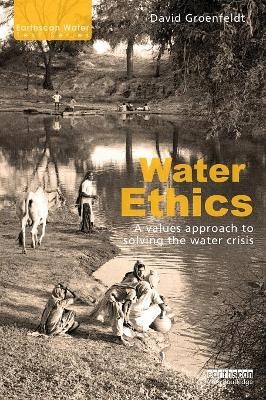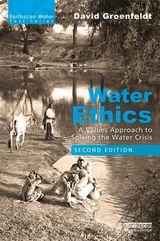
Water Ethics
Routledge (Verlag)
978-0-415-62645-3 (ISBN)
- Titel erscheint in neuer Auflage
- Artikel merken
The author shows the benefits of exposing tacit values and motivations and subjecting these to explicit public scrutiny where the values themselves can be debated. The aim of such a process is to create the proverbial 'level playing field', where values favoring environmental sustainability are considered in relation to values favoring short-term exploitation for quick economic stimulus (the current problem) or quick protection from water disasters (through infrastructure which science suggests is not sustainable).
The book shows how new technologies, such as drip irrigation, or governance structures, such as river basin organizations are neither "good" nor "bad" in their own right, but can serve a range of interests which are guided by ethics. A new ethic of coexistence and synergies with nature is possible, but ultimately depends not on science, law, or finances but on the values we choose to adopt. The book includes a wide range of case studies from countries including Australia, India, Philippines, South Africa and USA. These cover various contexts including water for agriculture, urban, domestic and industrial use, the rights of indigenous people and river, watershed and ecosystem management.
David Groenfeldt is the founder and Director of the Water-Culture Institute in Santa Fe, New Mexico, and Adjunct Associate Professor, Department of Anthropology, University of New Mexico, USA. He has previously worked on irrigation research at the International Water Management Institute (Sri Lanka), the design and management of irrigation projects for the World Bank, and rural development consulting for various international agencies. He is also the co-editor of "Global Water Ethics" (Routledge, 2017).
Preface – Why Water Ethics?
1. Introduction to Water Ethics
2. Manipulating Rivers
3. Water for Agriculture: The Ethics of Irrigation
4. Ethics in Urban and Domestic Water Use
5. Water for Industry: What is Responsible Use?
6. The Ethics of Water Governance
7. Indigenous Water Ethics
8. Towards a New Water Ethic
9. Conclusions
Index
| Erscheint lt. Verlag | 10.9.2013 |
|---|---|
| Reihe/Serie | Earthscan Water Text |
| Zusatzinfo | 1 Tables, black and white |
| Verlagsort | London |
| Sprache | englisch |
| Maße | 156 x 234 mm |
| Gewicht | 332 g |
| Themenwelt | Naturwissenschaften ► Biologie ► Ökologie / Naturschutz |
| Technik ► Umwelttechnik / Biotechnologie | |
| ISBN-10 | 0-415-62645-5 / 0415626455 |
| ISBN-13 | 978-0-415-62645-3 / 9780415626453 |
| Zustand | Neuware |
| Informationen gemäß Produktsicherheitsverordnung (GPSR) | |
| Haben Sie eine Frage zum Produkt? |
aus dem Bereich



